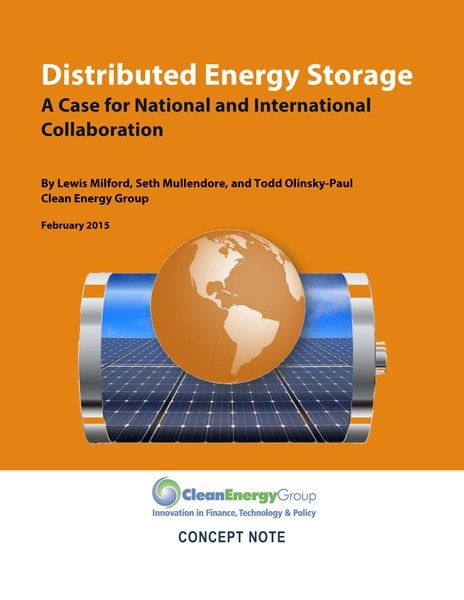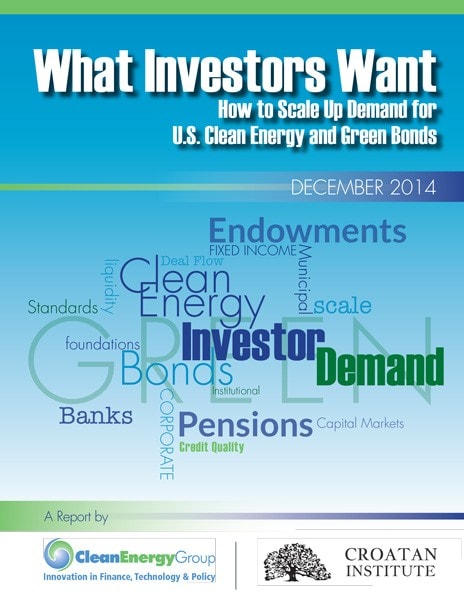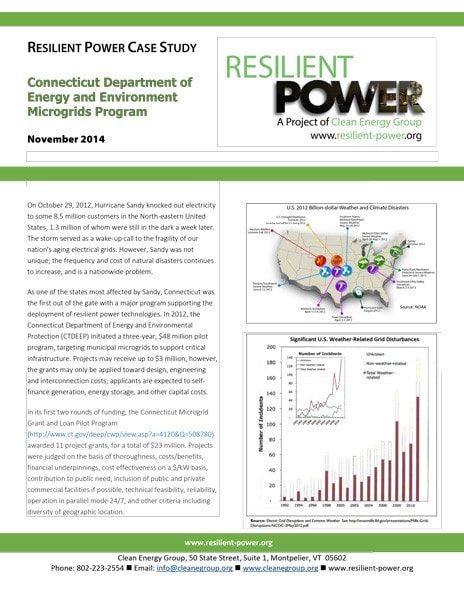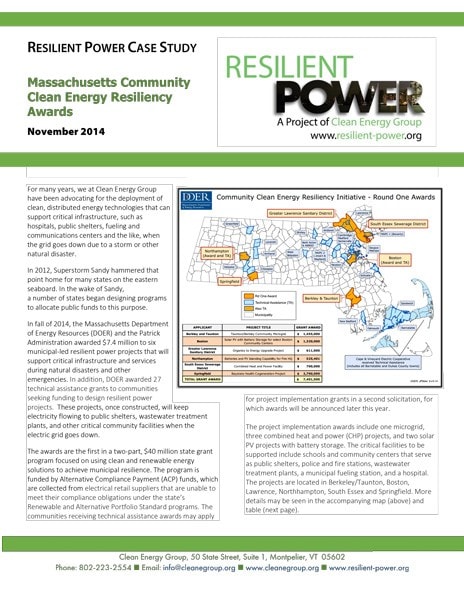Clean Energy Group
“Solar + Storage 101: An Introductory Guide to Resilient Solar Power Systems” provides a basic overview of a versatile and increasingly affordable resilient power technology.
This report recommends a multi-state collaboration on offshore wind to create stronger and consistent regional policies, financing actions, and permitting across the Northeast states.
In this concept note, Clean Energy Group proposes the creation of national and international networks around the next generation of clean energy innovation: combining energy storage with small-scale clean energy generation at the customer level.
This report outlines a new clean energy finance model for many resilient power systems to protect vulnerable communities and critical infrastructure from severe weather events.
Clean Energy Group and Croatan Institute have released the first comprehensive study of U.S. institutional investors’ appetite for green bonds.
This case study presents the Connecticut Department of Energy and Environment (CTDEEP)’s Microgrid Program.
This case study profiles the Maryland Game Changer Award Program and the Konterra solar + storage microgrid that the award program helped to fund.
This case study presents the Massachusetts Department of Energy Resources (MassDOER)’s Community Clean Energy Resiliency Awards.
This paper describes financing tools that can be used to implement projects and that will attract private capital on highly favorable terms, thereby reducing the cost of solar and resilient power installations.
This paper outlines the dangers that power outages can pose to our most vulnerable populations, the failures of traditional backup power sources, and the opportunities to develop distributed energy systems with clean and dependable energy technologies.














